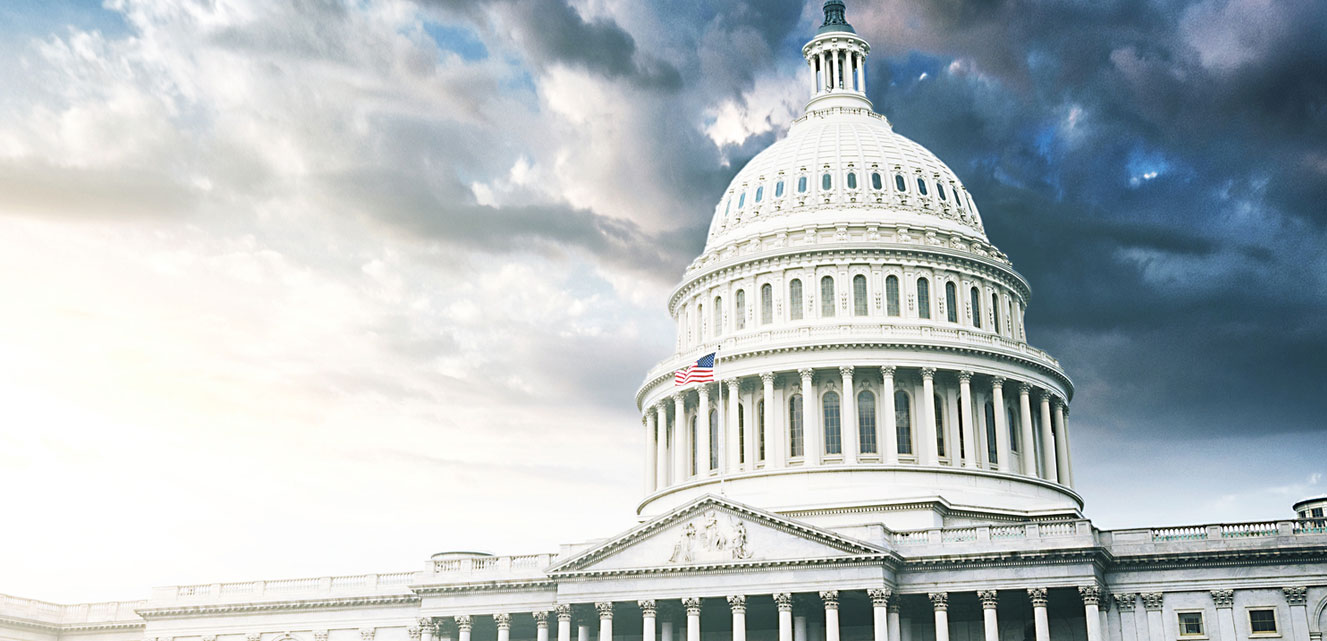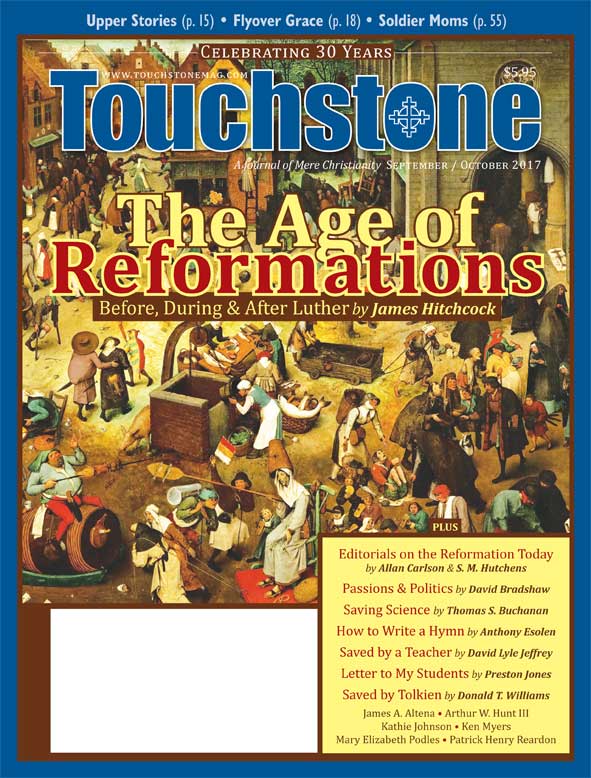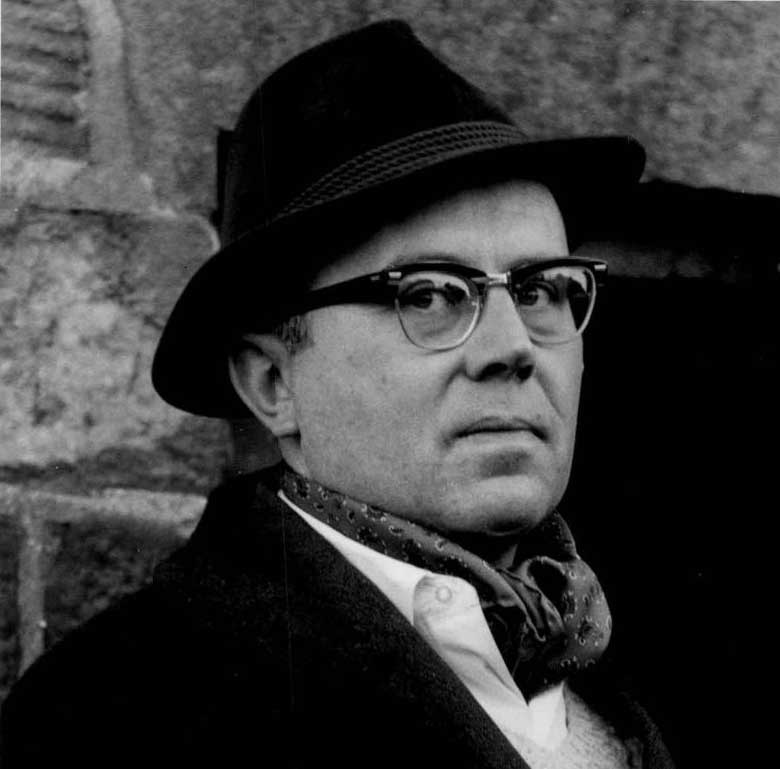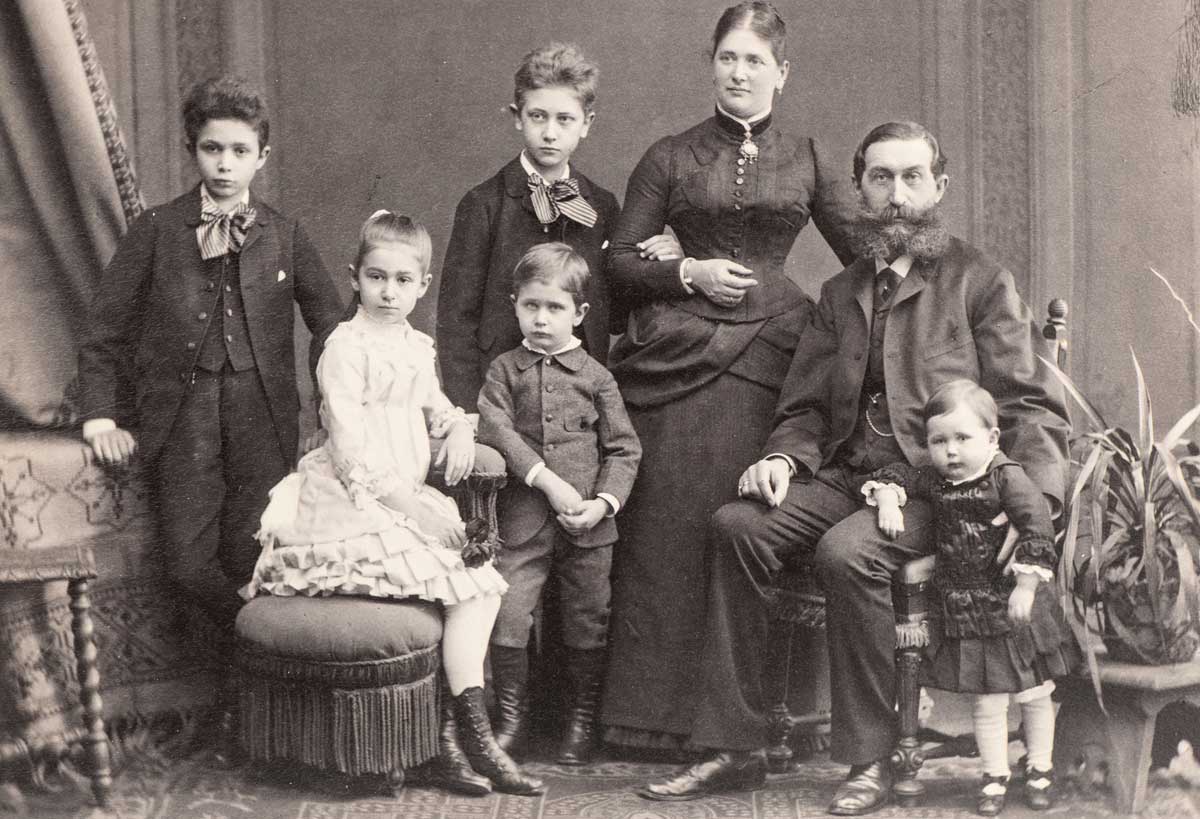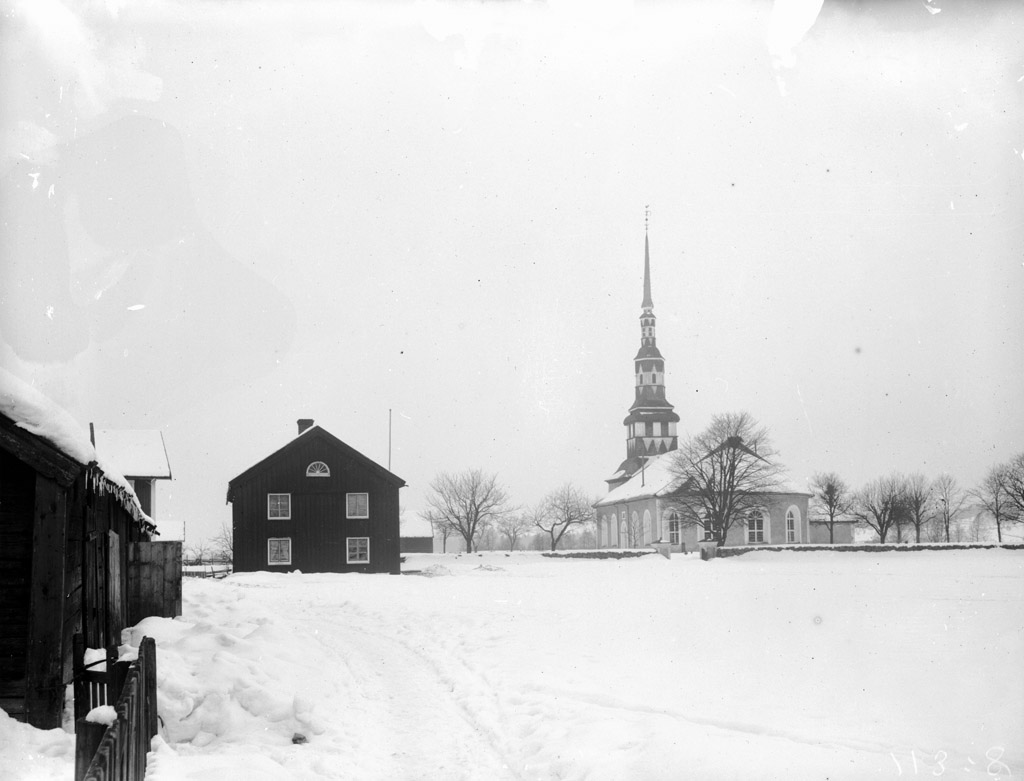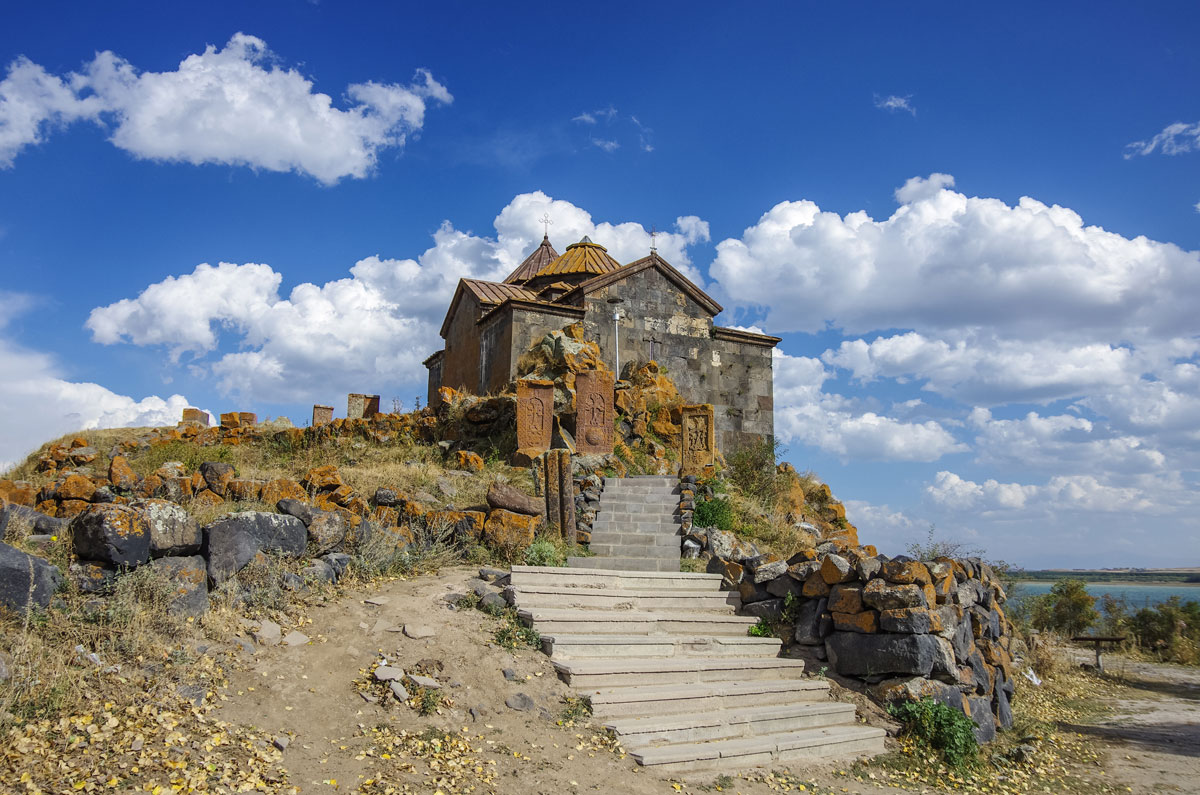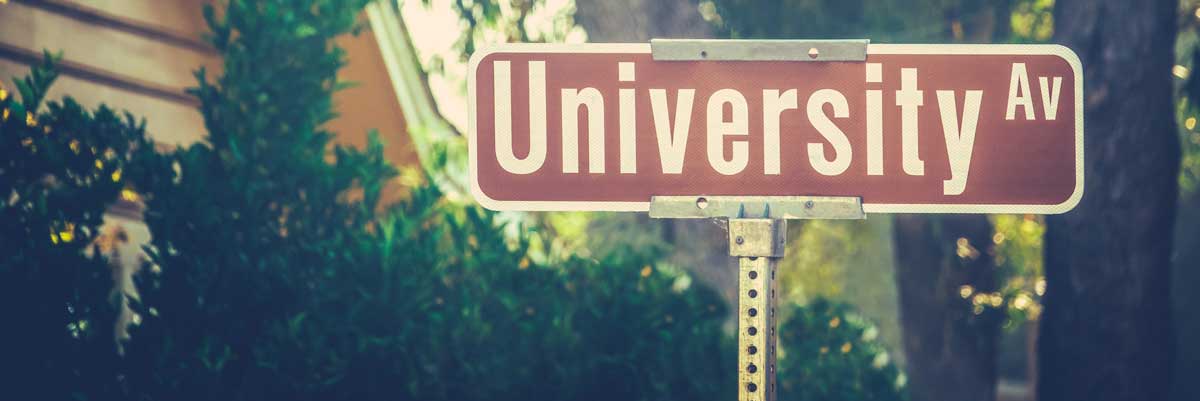Feature
Passions' Republic
The Christian Cure for What Ails Modern Politics
by David Bradshaw
We live in an age of deep cynicism toward politics. The victory of Donald Trump was a reminder that millions of ordinary voters have long felt slighted and ignored by the two major political parties. Whether Trump's victory will change this sense of alienation remains to be seen, but clearly there has been no healing of the bitter divisions within American culture. The strife is not merely political, but extends to matters of religion, morals, and even manners and entertainment. We in America simply do not like one another very much anymore, and as a result we can only view with suspicion a political process that aims, to the extent possible, to accommodate all comers.
It is plain that we face here a problem that is spiritual as well as political. The reason our politics has become poisonous is that, rightly or wrongly, we have lost respect for one another. How has this happened? How is it that a society that has achieved unprecedented heights of knowledge and prosperity cannot stop gnawing and biting at itself, like an animal infected with some horrible disease?
No doubt there are many answers. The one I would like to propose here goes back to the roots of modernity in the seventeenth and eighteenth centuries. It may seem surprising that a problem that has only recently—since the 1960s—come fully to light should have such deep roots. But there is a simple reason for this delay. For most of the modern era the churches effectively tempered the most corrosive aspects of modernity, neutralizing the worst effects of modern individualism through distinctively pre-modern practices of deference, self-denial, and voluntary submission. Beginning in the 1960s they abdicated that role. Today the imperial self conceived in the early modern era has been set free, and the consequences are visible all around us.
But I am getting ahead of my story. First we must understand how modernity had laid up within it from the beginning the engines of its own destruction. Only then can we see why the churches, and the churches alone, can provide the ballast that is necessary if our society is not to devolve into a state of near insanity.
John Locke: Theorist of the Independent Individual
We may begin with perhaps the greatest work of early modern political philosophy, John Locke's Second Treatise of Government (1689). Locke's central argument is well known: natural law teaches that "no one ought to harm another in his life, health, liberty, or possessions," and the proper role of government is to protect these rights. Famously, of course, the Declaration of Independence builds upon this argument. Years after the Revolution, Jefferson recalled that the Declaration was "intended to be an expression of the American mind" and that "all its authority rests on the harmonizing sentiments of the day, whether expressed in conversation, in letters, printed essays, or in the elementary books of public right, as Aristotle, Cicero, Locke, Sidney, &c." No theory of natural rights is to be found in Aristotle, Cicero, or Sidney, however, and it is primarily to Locke that this key element was due.
Locke's theory of property has been almost as influential. Locke postulates that in the state of nature, each man is free to appropriate natural goods subject to two limitations: that he take no more than he can use, and that he leave enough for others. Such use plausibly includes exchange with others. Eventually money is invented to facilitate exchange, and of course money, unlike organic goods, does not spoil. The requirement to take only what one can use thus becomes effectively a dead letter. Presumably (although Locke does not spell this out) there is also no possibility that accumulating money will fail to leave enough for others, for however much money one has, others remain free to barter as they choose. It turns out, then, that the state of nature, although it is "a state . . . of equality, wherein all the power and jurisdiction is reciprocal, no one having more than another," is also a state of sharp economic inequality. No one may complain of such a result, for by engaging in the use of money, all have given tacit consent to the inequality that results.
Locke sets forth his position with admirable clarity. To his credit, he recognizes that it is not enough simply to assert the existence of a natural law; he must argue for it. One of his key arguments is that since human beings are "all the workmanship of one omnipotent, and infinitely wise maker . . . they are his property, whose workmanship they are, made to last during his, not one another's pleasure." Having made this argument, Locke then immediately sets it aside. He does not ask the obvious question: if we are all God's property, ought not we to inquire what his will for us is—including whether he lays upon us a positive duty to help others? Such positive duties would certainly be important if they exist, but Locke simply ignores that possibility. This is a major defect of his argument.
Locke's theory of property also faces serious objection. The key claim is that all have given implicit consent to the unequal distribution of property merely by the use of money. Two simple rejoinders come to mind. First, there may be no practical alternative to the use of money because others may require it as a medium of exchange. If so, then how does using it commit one to accept whatever results it ultimately enables? We normally require some effective freedom in entering into an agreement in order to regard that agreement as binding; why should this case be different? Second, even if Locke were right about the state of nature, it is far from clear what that has to do with property within civil society. Once the social contract has been established, much that was legitimate in the state of nature becomes subject to regulation through majority rule. Why not property as well?
Finally, before leaving Locke we must note his rather surprising position on slavery. One might suppose that, since all have a natural right to liberty, slavery could have no place in the Lockean state. But one would be wrong. Any violation of the law of nature may justly be punished in a way that is roughly proportionate to the crime. This means that one who unjustly seeks the life of another thereby forfeits his own right to life, and with it (a fortiori) his right to liberty. That already seems rather questionable, but Locke goes on to add that the same is true of anyone on the wrong side in a just war. Hence captives taken in war, assuming one's own side to be just, may be made slaves.
David Bradshaw is a Professor of Philosophy at the University of Kentucky and the author of Aristotle East and West: Metaphysics and the Division of Christendom (Cambridge University Press), as well as numerous articles on ancient, medieval, and patristic philosophy. He and his wife attend St. Athanasius Orthodox Church in Nicholasville, Kentucky.
subscription options
Order
Print/Online Subscription

Get six issues (one year) of Touchstone PLUS full online access including pdf downloads for only $39.95. That's only $3.34 per month!
Order
Online Only
Subscription

Get a one-year full-access subscription to the Touchstone online archives for only $19.95. That's only $1.66 per month!
bulk subscriptions
Order Touchstone subscriptions in bulk and save $10 per sub! Each subscription includes 6 issues of Touchstone plus full online access to touchstonemag.com—including archives, videos, and pdf downloads of recent issues for only $29.95 each! Great for churches or study groups.
Transactions will be processed on a secure server.
more on america from the online archives
more from the online archives
calling all readers
Please Donate
"There are magazines worth reading but few worth saving . . . Touchstone is just such a magazine."
—Alice von Hildebrand
"Here we do not concede one square millimeter of territory to falsehood, folly, contemporary sentimentality, or fashion. We speak the truth, and let God be our judge. . . . Touchstone is the one committedly Christian conservative journal."
—Anthony Esolen, Touchstone senior editor





